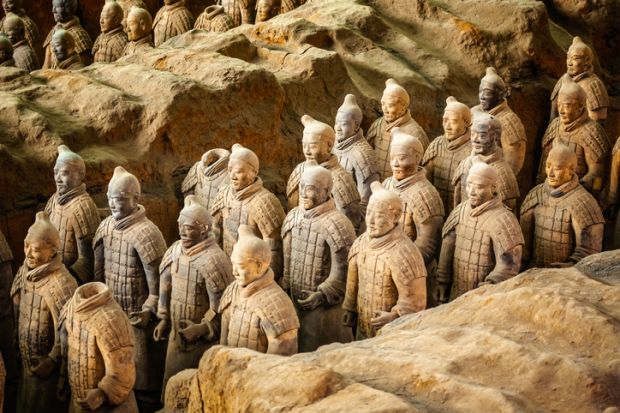Beijing has made it easier for companies to hire graduates seeking jobs in the Chinese capital, but experts fear the tweak to the system of household registration rules – known as hukou – could reinforce the country’s urban-rural divide.
Human resources authorities in Beijing announced that recruitment of graduates from “domestic universities that ranked top 200 globally” will not be counted under an annual cap tied to hukou, the household registration system that identifies and grants a person’s access to services based on their residential status.
Although the document did not specify which ranking was referred to, local media confirmed that Tsinghua, Peking, Fudan, Shanghai Jiao Tong, Nanjing and Zhejiang universities were on the list, alongside the University of Science and Technology of China.
Compared with previous policies, age and degree thresholds have also been lowered for targeted graduates who can support Beijing’s key strategies and projects, and help guarantee the provision of essential public services in “education, health, culture, sport and city operation”.
“It is relatively easy for people with very high educational qualifications to get local urban hukou, as they can get professional jobs and may be regarded as ‘being needed for local urban development’ by local governments,” said Yu Chen, lecturer in Chinese studies at the University of Sheffield. “As a megacity and the capital, there are still many migrants with bachelor’s degrees who could not get local urban hukou.”
But the measures were considered to be a sign of a changing attitude towards talent by many experts in China. Wei Huaying, associate professor at the School of Labor Economics, Capital University of Economics and Business, told local media that it was progress that Beijing now saw graduates as “valuable resources” to “serve” rather than simply a talent pool to “manage”.
As the elderly population in Beijing is expected to hit 5 million by 2025, population ageing and the growing competition for talents from “new first-tier cities” such as Chengdu and Hangzhou may have contributed to the attitude shift, but leading experts expressed concern that merit-based hukou rules in large cities could exacerbate the urban-rural divide in China.
“In general, hukou policies have been made easier for the college-educated, especially in lower-tier cities,” said Kam Wing Chan, a professor in the department of geography at the University of Washington. “Still, Beijing remains very restrictive to migrants, including college graduates.”
Professor Chan pointed out that policy revisions in recent years, including the 2014 national plan of hukou reform, made it easier for domestic migrants to settle in small urban centres, but “more stringent in preventing migrants from entering or staying in large cities”, particularly to the “low-end population” (diduanrenkou).
“Lots of research shows that Chinese youths with rural hukou have experienced a dramatic decline in their share of college enrolments in recent years since China’s enrolment expansion after 1998,” said Martin Whyte, John Zwaanstra professor of international studies and sociology, emeritus, at Harvard University.
“So the new policies that enable university graduates to receive hukou registration in cities like Beijing and Shanghai are mainly enabling urban youths from areas like Guangzhou, Chengdu and Dalian to more easily qualify for local registrations in the largest cities.”
Acknowledging the potential economic contributions that these overachievers could bring to Beijing, Professor Whyte said he thought the new policies “reflect a highly unjust system in which it is taken for granted that only certain individuals with high ‘quality’ should be entitled to apply for membership as full urban citizens in China’s largest cities, while everyone else who migrates to such places must remain in a lower caste position, or even should go away as members of a ‘low-end population’”.
Register to continue
Why register?
- Registration is free and only takes a moment
- Once registered, you can read 3 articles a month
- Sign up for our newsletter
Subscribe
Or subscribe for unlimited access to:
- Unlimited access to news, views, insights & reviews
- Digital editions
- Digital access to THE’s university and college rankings analysis
Already registered or a current subscriber? Login




